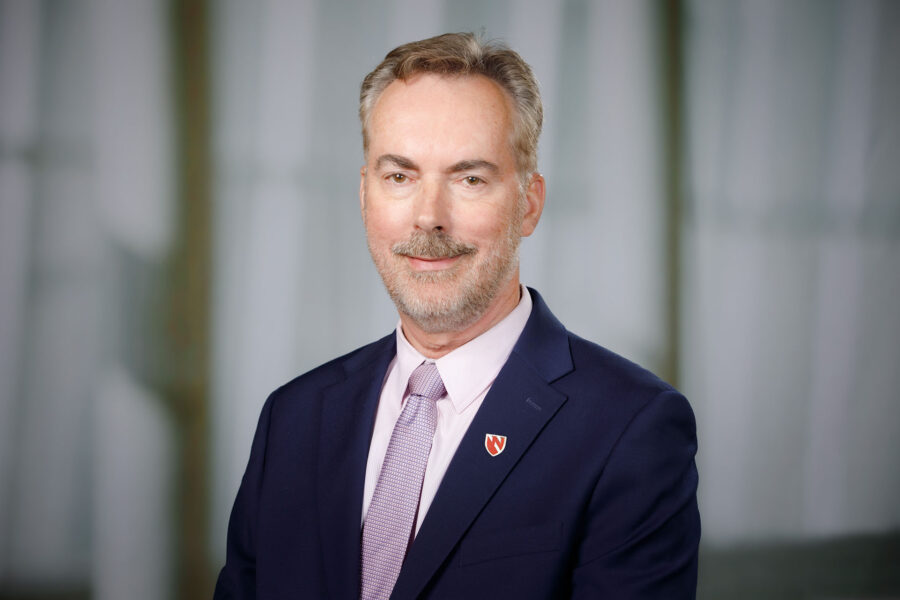Gerry Kugel, DMD, PhD, dean of the UNMC College of Dentistry, testified last month on LR 373, an interim study to examine different methods, including potential statutory changes, to address the need to recruit, train and retain individuals to practice dentistry in Nebraska.
During his testimony, Dr. Kugel discussed a variety of strategies to expand the dental workforce and improve access to care across Nebraska. “Our college of dentistry is committed to training dental professionals for Nebraska,” he said, noting 66% of Nebraska dentists are UNMC graduates and 81% of rural Nebraska dentists are UNMC graduates.
“The college serves as a crucial part of the state’s dental ‘safety net,’ providing over $80,000 patient visits annually and delivering more than $7 million in free and reduced fee care each year for underserved populations,” he said.
Dr. Kugel suggested that, with additional resources, Nebraska could become a national leader in training dentists equipped to care for patients with special health care needs, through specialized programs and clinics. Additional strategies, he said, for workforce expansion include:
- Licensure portability – Support for a dental and hygiene licensure compact could streamline practice across state lines and both attract providers from neighboring states as well as reduce administrative barriers for new graduates.
- Dental career pathways – Establishing a pre-dental curriculum and formal job-shadowing programs in middle and high school, with options for college credit, to cultivate interest.
- Loan repayment for faculty – Expanding loan repayment incentives for dental faculty is essential for recruiting and retaining educators, which directly impacts the ability to train more students.
- Urgent dental care access – UNMC is developing an urgent care clinic at the dental school to manage emergent dental needs and reduce emergency room visits.
- Veteran dental care – UNMC’s VetSmile program, funded by private donations, has provided free dental care to hundreds of veterans, a population often overlooked for dental benefits.
- Increasing student enrollment – Doing this would require CODA approval, he said, as well as additional faculty and expansion of clinical facilities.
“The NDA is grateful for Dean Kugel’s leadership in thinking through creative strategies that will address dental workforce issues in Nebraska,” said Jessica Meeske, DDS, president of the Nebraska Dental Association. “He absolutely gets how access to dental care and dental education are intertwined both in creating the next generation of dental providers to care for Nebraskans and being a leader in innovative ways to meet the need.”

In order to meet expanding needs for dental education in NE, a new dental school, on par with the state of the art medical education facilities in Omaha, is absolutely needed.
Real innovation would include authorization of dental therapists and relaxing some of the restrictive rules of the dental practice act to allow more flexibility for dental hygienists